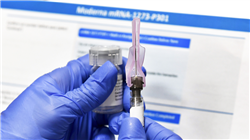University certificate
The world's largest faculty of pharmacy”
Introduction to the Program
Through this 100% online Postgraduate certificate, you will be able to evaluate risk factors that influence the incidence of diseases and design more efficient control programs"

According to official data from the World Health Organization, medication errors are responsible for 2.1 million hospital admissions annually on a global scale. Given this reality, understanding the principles of Clinical Epidemiology is essential for Pharmacy professionals, who have a key role in dispensing and monitoring drugs. Thanks to this, pharmacists can make informed decisions on drug selection, thus promoting rational drug use and minimizing unnecessary or inappropriate use of these products.
Given this scenario, TECH creates a revolutionary program in Postgraduate Certificate in Clinical Epidemiology in Public Health. The academic itinerary will delve into the evaluation of the quality of intervention studies; paying attention to issues such as ethical aspects in research or the differentiation between pragmatic and explanatory clinical trials. Likewise, the syllabus will examine the analysis of the quality of care, taking into account the measurement of patient outcomes and experiences through sophisticated tools such as PROM. In this way, graduates will develop advanced skills to evaluate the effectiveness of pharmaceutical interventions through the design of epidemiological studies.
On the other hand, the program is based on a 100% online methodology, so that pharmacists can comfortably complete the program. In this sense, the only thing that professionals will require to enter the virtual platform will be an electronic device with Internet access (such as a cell phone, computer or tablet). In this way, they will be able to enjoy top-quality teaching materials and a virtual library full of multimedia resources. It should be noted that TECH uses the state-of-the-art Relearning system, which guarantees progressive and natural learning. In this way, graduates will enjoy a high-intensity program that will allow them to experience a significant leap in quality in their careers.
You will achieve professional success as a Pharmacist with this intensive program, developed by professionals with extensive experience in Postgraduate Certificate in Clinical Epidemiology in Public Health"
This Postgraduate certificate in Postgraduate Certificate in Clinical Epidemiology in Public Health contains the most complete and up-to-date scientific program on the market. The most important features include:
- Development of practical case studies presented by experts in Public Health and health management
- The graphic, schematic, and practical contents with which they are created, provide scientific and practical information on the disciplines that are essential for professional practice
- Practical exercises where self-assessment can be used to improve learning.
- Its special emphasis on innovative methodologies
- Theoretical lessons, questions to the expert, debate forums on controversial topics, and individual reflection assignments
- Content that is accessible from any fixed or portable device with an Internet connection
You will delve into the ethical aspects of interventional research, which will ensure that your research is conducted in a transparent manner"
The program’s teaching staff includes professionals from the sector who contribute their work experience to this program, as well as renowned specialists from leading societies and prestigious universities.
The multimedia content, developed with the latest educational technology, will provide the professional with situated and contextual learning, i.e., a simulated environment that will provide immersive education programmed to prepare for real situations.
This program is designed around Problem-Based Learning, whereby the professional must try to solve the different professional practice situations that arise during the course. For this purpose, the students will be assisted by an innovative interactive video system created by renowned and experienced experts.
You will apply the principles of the GRADE methodology to establish the strength and certainty of clinical recommendations"

Through TECH's disruptive Relearning system, you will assimilate the essential concepts in a fast, natural and precise way"
Why study at TECH?
TECH is the world’s largest online university. With an impressive catalog of more than 14,000 university programs available in 11 languages, it is positioned as a leader in employability, with a 99% job placement rate. In addition, it relies on an enormous faculty of more than 6,000 professors of the highest international renown.

Study at the world's largest online university and guarantee your professional success. The future starts at TECH”
The world’s best online university according to FORBES
The prestigious Forbes magazine, specialized in business and finance, has highlighted TECH as “the world's best online university” This is what they have recently stated in an article in their digital edition in which they echo the success story of this institution, “thanks to the academic offer it provides, the selection of its teaching staff, and an innovative learning method aimed at educating the professionals of the future”
A revolutionary study method, a cutting-edge faculty and a practical focus: the key to TECH's success.
The most complete study plans on the university scene
TECH offers the most complete study plans on the university scene, with syllabuses that cover fundamental concepts and, at the same time, the main scientific advances in their specific scientific areas. In addition, these programs are continuously being updated to guarantee students the academic vanguard and the most in-demand professional skills. In this way, the university's qualifications provide its graduates with a significant advantage to propel their careers to success.
TECH offers the most comprehensive and intensive study plans on the current university scene.
A world-class teaching staff
TECH's teaching staff is made up of more than 6,000 professors with the highest international recognition. Professors, researchers and top executives of multinational companies, including Isaiah Covington, performance coach of the Boston Celtics; Magda Romanska, principal investigator at Harvard MetaLAB; Ignacio Wistumba, chairman of the department of translational molecular pathology at MD Anderson Cancer Center; and D.W. Pine, creative director of TIME magazine, among others.
Internationally renowned experts, specialized in different branches of Health, Technology, Communication and Business, form part of the TECH faculty.
A unique learning method
TECH is the first university to use Relearning in all its programs. It is the best online learning methodology, accredited with international teaching quality certifications, provided by prestigious educational agencies. In addition, this disruptive educational model is complemented with the “Case Method”, thereby setting up a unique online teaching strategy. Innovative teaching resources are also implemented, including detailed videos, infographics and interactive summaries.
TECH combines Relearning and the Case Method in all its university programs to guarantee excellent theoretical and practical learning, studying whenever and wherever you want.
The world's largest online university
TECH is the world’s largest online university. We are the largest educational institution, with the best and widest online educational catalog, one hundred percent online and covering the vast majority of areas of knowledge. We offer a large selection of our own degrees and accredited online undergraduate and postgraduate degrees. In total, more than 14,000 university degrees, in eleven different languages, make us the largest educational largest in the world.
TECH has the world's most extensive catalog of academic and official programs, available in more than 11 languages.
Google Premier Partner
The American technology giant has awarded TECH the Google Google Premier Partner badge. This award, which is only available to 3% of the world's companies, highlights the efficient, flexible and tailored experience that this university provides to students. The recognition as a Google Premier Partner not only accredits the maximum rigor, performance and investment in TECH's digital infrastructures, but also places this university as one of the world's leading technology companies.
Google has positioned TECH in the top 3% of the world's most important technology companies by awarding it its Google Premier Partner badge.
The official online university of the NBA
TECH is the official online university of the NBA. Thanks to our agreement with the biggest league in basketball, we offer our students exclusive university programs, as well as a wide variety of educational resources focused on the business of the league and other areas of the sports industry. Each program is made up of a uniquely designed syllabus and features exceptional guest hosts: professionals with a distinguished sports background who will offer their expertise on the most relevant topics.
TECH has been selected by the NBA, the world's top basketball league, as its official online university.
The top-rated university by its students
Students have positioned TECH as the world's top-rated university on the main review websites, with a highest rating of 4.9 out of 5, obtained from more than 1,000 reviews. These results consolidate TECH as the benchmark university institution at an international level, reflecting the excellence and positive impact of its educational model.” reflecting the excellence and positive impact of its educational model.”
TECH is the world’s top-rated university by its students.
Leaders in employability
TECH has managed to become the leading university in employability. 99% of its students obtain jobs in the academic field they have studied, within one year of completing any of the university's programs. A similar number achieve immediate career enhancement. All this thanks to a study methodology that bases its effectiveness on the acquisition of practical skills, which are absolutely necessary for professional development.
99% of TECH graduates find a job within a year of completing their studies.
Postgraduate Certificate in Clinical Epidemiology in Public Health
The Postgraduate Certificate in Clinical Epidemiology in Public Health created by TECH Global University is a high-level educational program designed for professionals in health and related areas who wish to acquire specialized knowledge in the field of clinical epidemiology. This program offers comprehensive and up-to-date training in epidemiological research methodologies applied to the field of public health. During the program, taught 100% online, you will explore the fundamentals of clinical epidemiology, including the design of epidemiological studies, data collection or analysis, interpretation of results, and application of findings to clinical and public health practice. In addition, topics such as risk assessment, causality in epidemiology, evidence-based medicine, and clinical and health policy decision making will be addressed. One of the key advantages of this course is its practical and applied approach. You will have the opportunity to apply the methodologies learned through case studies and real case studies, developing critical skills in the interpretation of epidemiological data and the formulation of conclusions based on scientific evidence.
Specialize in clinical epidemiology in public health.
The 100% online format provides flexibility to access the content from anywhere and at any time, adapting your learning to your schedule and professional responsibilities. This promotes a personalized learning experience and allows you to advance at your own pace. The course faculty is composed of experts in clinical epidemiology and public health, who bring a combination of theoretical knowledge and practical experience in the field. Upon completion, you will be prepared to perform in key roles within health organizations, academic institutions, government agencies, the pharmaceutical industry and other related sectors. You will be able to design, implement and evaluate epidemiological studies, contribute to public health decision-making and improve the quality of medical care through scientific evidence. In short, this program will provide you with the necessary tools to address current and future challenges in epidemiological research and population health improvement. Enroll now!







